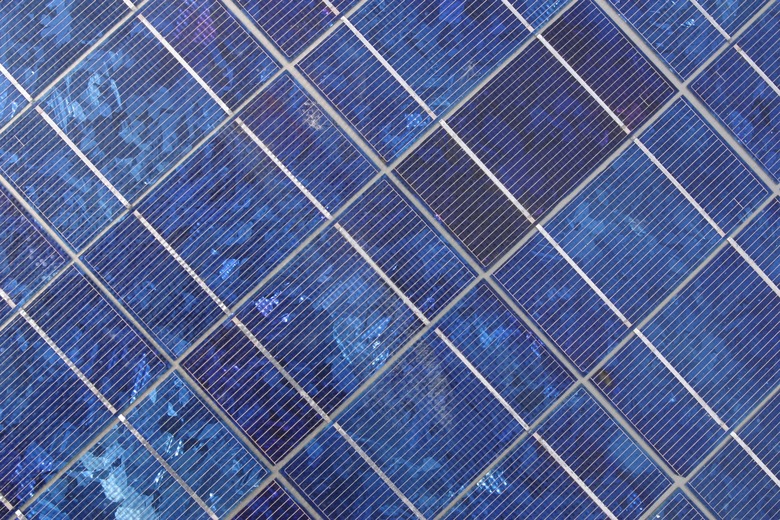Can A Solar Panel Run A Small Electric Engine?
Electric engines power many different kinds of devices, from wristwatches to water pumps. You can run an engine from the outlets in a solar-powered house or from the power generated by dedicated solar panels. However, not all solar power configurations can power all engines. In order to power an electric engine with solar power, you must match the capacity of your solar power system with the requirements of the engine.
Connection of Solar Cells
The power provided by solar cells will vary depending on the number of cells and the way in which they are connected. A typical cell provides around 0.5 to 0.6 volts of electricity. If you connect multiple cells in series, their voltage will add. If you connect solar cells in parallel, the module will provide a higher current. You can connect cells in a combination of series and parallel circuits in order to achieve the desired voltage and current output.
Solar Battery
A solar array produces power only when sunlight comes into contact with it. If your solar array were directly connected to an engine, the engine would not receive power in darkness. A battery connected between your solar panels and the engine will store the power generated by solar panels until it is needed. Additionally, the amount of power generated by your solar array varies based on your location, weather conditions and time of year. Cloudless equatorial regions will receive far greater solar potential than cloudy polar regions. If your solar energy fluctuates, your engine performance may fluctuate accordingly. A battery helps provide an engine with power stability for both immediate and long-term applications. Furthermore, an engine typically needs an initial surge of current in order to start. Solar panels without a battery may not be able to provide this surge current. Therefore, it is important to have a battery for your electric engine, even if you intend to run it exclusively in sunlight.
Power
Electrical power is the product of voltage and current, and is measured in watts. A typical power outlet in the United States provides 120 volts at 15 amps. Therefore, this outlet provides 1,800 watts of power. Engines convert electrical power into mechanical power, which is the product of torque and angular velocity. Different engines produce different amounts of mechanical power, depending on their intended use. The motor in a ceiling fan can require as few as 65 watts. The motor in a dishwasher, on the other hand, usually requires at least 1,200 watts.
Engine Requirements and Efficiency
Most nameplates on engines only list their output power. However, you can estimate input power requirements by calculating the required power at different levels of efficiency. Engine efficiency is the ratio of input power to output power. For example, a 100-watt engine functioning at 75 percent efficiency uses 75 watts of input power. Electric engines typically run at a minimum of 50 percent efficiency. If the engine does not have the required input power, it will function at a reduced efficiency, or won't function at all. Furthermore, your solar panel and battery produce direct current power. If your engine requires alternating current, you must convert the direct current to alternating current with a power inverter.
Cite This Article
MLA
Murmson, Serm. "Can A Solar Panel Run A Small Electric Engine?" sciencing.com, https://www.sciencing.com/can-solar-panel-run-small-electric-engine-12304090/. 24 April 2017.
APA
Murmson, Serm. (2017, April 24). Can A Solar Panel Run A Small Electric Engine?. sciencing.com. Retrieved from https://www.sciencing.com/can-solar-panel-run-small-electric-engine-12304090/
Chicago
Murmson, Serm. Can A Solar Panel Run A Small Electric Engine? last modified March 24, 2022. https://www.sciencing.com/can-solar-panel-run-small-electric-engine-12304090/
